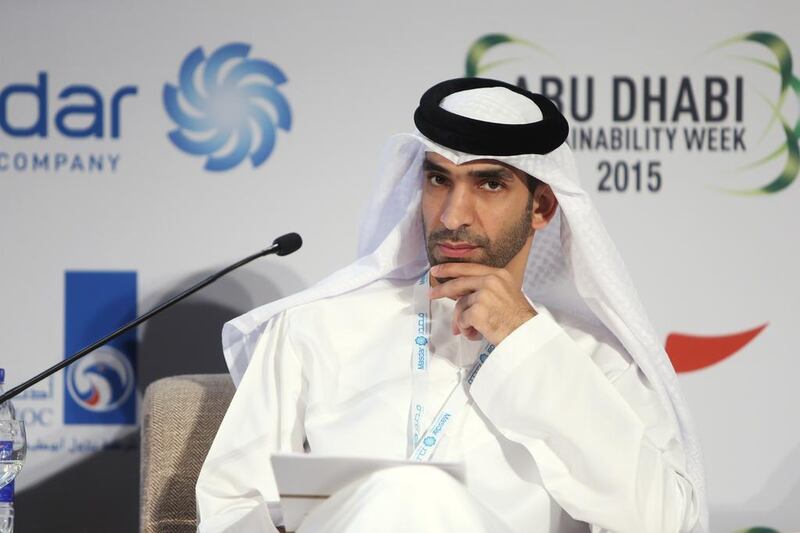ABU DHABI // The level of renewable water resources in Gulf countries is among the lowest in the world, according to a recently released regional food security report.
The seventh Arab Environment: Food Security report by the Arab Forum for Environment and Development (AFED) qualified the water situation in the GCC as alarming after it found the per capita resources of six countries, including the UAE, “exceptionally scarce” with less than 100 cubic metres per capita per year, compared to 6,000 globally.
Another 13 Middle East countries, including Oman and Jordan, were categorised as severely water scarce, at less than 500.
“The renewable water resources per capita in the region are very low and among the lowest in the world,” said Najib Saab, secretary general of AFED in Lebanon. “Wastewater treatment is very low - only 48 per cent of it is treated in the region and the alarming thing is that what’s reused of it is between nine and 37 per cent only. GCC countries are the highest re-users of wastewater but some countries treat it and throw it in the desert or the sea.”
The report found that the Arab region imports half of the basic food it consumes. Crop productivity and irrigation efficiency are poor – under 40 per cent for 10 countries – and high losses were recorded in post harvest transportation or other parts of the food chain.
“Countries can boost their food production primarily by improving these,” Dr Saab said at the International Water Summit in Abu Dhabi this week. “But especially by regional cooperation.”
Dr Abdulkarim Sadik, economic advisor at the Kuwait Fund for Arab Economic Development, said if irrigation efficiency were raised from 46 per cent 70 per cent, it could save around 50 billion cubic metres of water - enough to produce more than 30 million tonnes of cereals. That amount is 50 per cent of total imports of cereals in the region.
For the UAE, an involvement of the private sector is a must.
“We look at food security as a puzzle,” said Dr Thani Ahmed Al Zayoudi, permanent representative of the UAE at the International Renewable Energy Agency (Irena) and director of energy and climate change at the Ministry of Foreign Affairs. “This is because of our environment, climate, water scarcity and our dependency on other suppliers for food products that we really need in this region. We look at it from a holistic point of view - we’re moving towards technologies like solar desalination plants and enhanced our relations with countries to ensure a sustainable supply of food.”
He said capacity-building was vital.
“The willingness of people is important,” he said. “We’re looking at the private sector involvement because the government can’t do it alone..Governments can support but we have to think seriously about having the private sector on board at an early stage to ensure that they bring the right technology at the right cost.”
One of these companies is Abu Dhabi-based Exceed.
“We are the instrument of the private sector which makes sure you have a market from supply to demand,” said Dr Kamel Abdallah, Exceed’s chief executive. “Our agricultural plan is from farm to the fork. The private sector is central to this as we are the ones who farm all year round, import the product, are responsible for the whole chain, especially when it requires silos and fridges to move the product to get to consumers.”
He said sustainable food security needed to make sense from a business point of view to avoid government subsidies.
“Water is at the centre of food security,” he said. “We want more food but, without technologies in place, the crops will be very expensive.”
The company uses almost 700 litres per day on each of its 50,000 cows in Al Ain.
“Fisheries are also important and we’re putting them in place but they also require water and its recycling. We have more demand but unless we have changes in mindsets, we’re going to continue to have a challenge.”
cmalek@thenational.ae





